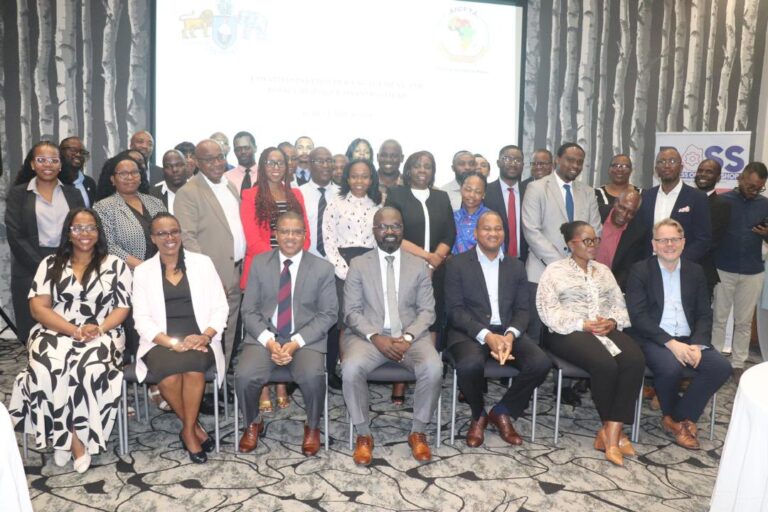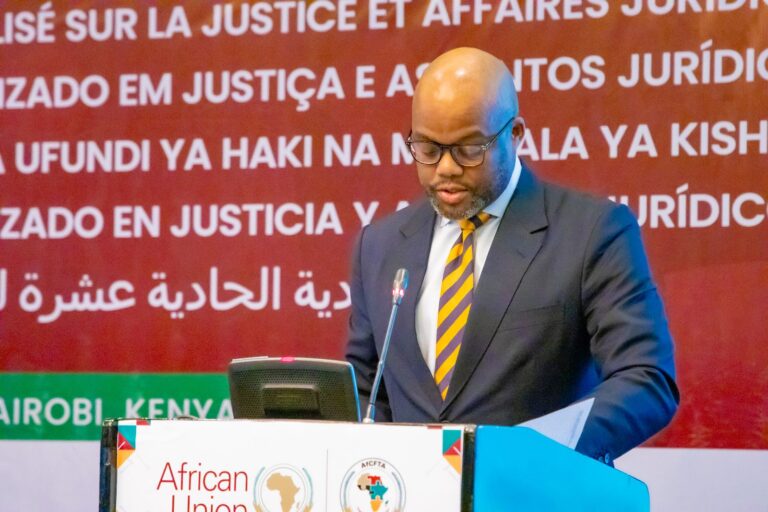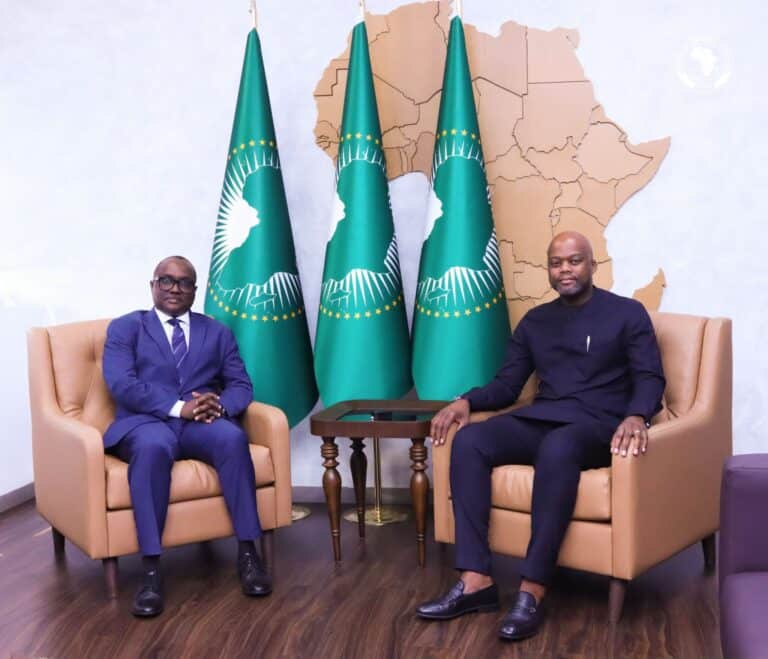The AfCFTA Business Forum kicked off on Sunday afternoon with an electrifying opening ceremony that was graced by several dignitaries. From H.E. Mahamadou Issoufou, Former President of the Republic of Niger and Champion of the AfCFTA, to the Deputy Chairperson, Dr. Monique Nsanzanbagwa, and many more. The honorable speakers delivered important and powerful remarks about the timely opportunity of this gathering and urged all Africans to own and drive the AfCFTA.




On the first day of the forum, the speeches and panel discussions made it clear that the private sector is the driver of trade and should be at the core of the conversation around the implementation of the AfCFTA. We are creating a market of 1.3 billion people, and the private sector needs to prepare itself to make the AfCFTA work for them. This means expanding businesses, strengthening competitiveness, boosting innovation, and creating jobs.



However, while there are huge opportunities, several roadblocks need to be addressed. These include the lack of access to finance, poor infrastructure, and the high cost of doing business. To reduce business costs, we need to support investment in infrastructure, including energy, transport, and ICT. We also need to promote regional value chains and the development of local industries to increase intra-regional trade.
The private sector was urged to identify opportunities for investment in value chains that will increase intra-Africa trade. The first day of the AfCFTA Business Forum was not just informative but also engaging, highlighting the importance of private sector involvement in the AfCFTA. It was a day of networking, learning, and planning for a brighter economic future for Africa. Stay tuned for more updates as the forum continues.
Opening High-Level Dialogue
The Opening High Level Dialogue at the AfCFTA Business Forum aimed to discuss the economic potential of the “One African Market” and the opportunities for trade and investment in the current geo-economic context. Moderator Lerato Mbele facilitated the discussion with pan-African and global business leaders. The panel focused on how to increase intra-Africa trade to accelerate economic growth through industrialization and job creation. Ralph Mupita, CEO of MTN South Africa, Mr. Fayyaz Rizvi, Regional CEO for Sub Sahara Africa of Procter & Gamble, Ms. Patricia Obozuwa, Vice President of Public Affairs, Communications & Sustainability at Coca-Cola, Dr. Amany Asfour, President of Africa Business Council, and John Don Bosco Kalisa, President of East African Business Council, all provided their insights on the challenges and opportunities facing intra-Africa trade. A common theme in the discussions was the importance of the AfCFTA Protocols, particularly on Investment, Digital Trade, Dispute Settlement and Intellectual Property Rights to be completed in order to enable businesses to thrive on the continent. The importance of seamless digital trade was emphasised as important in enabling smaller businesses to tap into broader markets.


The discussion focused on the need for increased collaboration among African businesses, harmonization of trade regulations, and investment in digital infrastructure to facilitate cross-border trade. The panelists also discussed the importance of private sector involvement in the AfCFTA implementation process and the potential for the AfCFTA to drive economic growth and create jobs across the continent.
Presidential Statements
To conclude the first day, two presidential statements were delivered. The first was delivered on behalf of President Ramaphosa and highlighted the importance of the AfCFTA as a crucial platform for achieving economic integration in Africa and called for collective efforts towards its successful implementation. The second statement was the keynote address delivered by H.E. Mahamadou Issoufou, the former President of the Republic of Niger and AfCFTA Champion.



